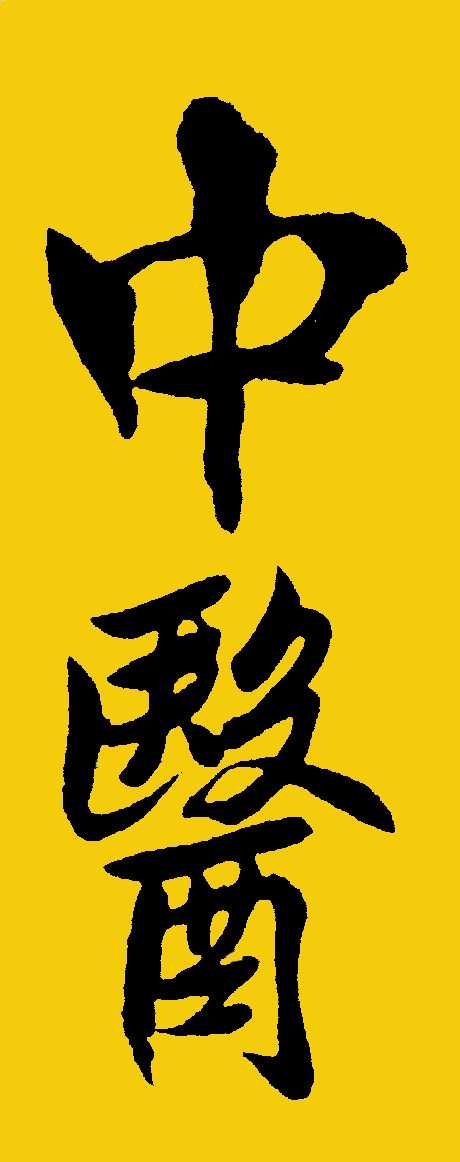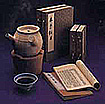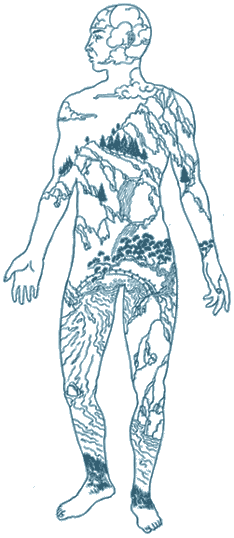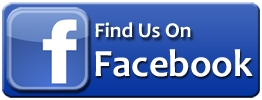|
Chinese Medicine
Three Thousand
Years of Evolution
 Chinese
Medicine is a coherent and independent Chinese
Medicine is a coherent and independent
 system of thought and practice
that has been developed over two millennia. Based on ancient texts, it
is the result of a continuous process of critical thinking, as well as
extensive clinical observation and testing. It represents a thorough
formulation and reformulation of material by respected clinicians and
theoreticians. It is also, however, rooted in the philosophy, logic,
sensibility, and habits of a civilization entirely foreign to our own.
It has therefore developed its own perception of the body and of health
and disease. system of thought and practice
that has been developed over two millennia. Based on ancient texts, it
is the result of a continuous process of critical thinking, as well as
extensive clinical observation and testing. It represents a thorough
formulation and reformulation of material by respected clinicians and
theoreticians. It is also, however, rooted in the philosophy, logic,
sensibility, and habits of a civilization entirely foreign to our own.
It has therefore developed its own perception of the body and of health
and disease.
Within the Eastern world view, a human being is a living
microcosm, a universe in miniature, the offspring of Heaven and Earth, a
fusion of cosmic and terrestrial forces. People are recognized as beings
with a self-aware mind embodied in physical form. The unseen and the
seen, psyche and soma, are mutually valid and cogenerative: the body
provides a home for the mind, and the spirit, nestled securely within
the body, animates physical life.
Whereas modern medicine relies on Cartesian-Newtonian
science, Chinese Medicine is embedded within a philosophy of nature. A postulate
of Chinese Medicine is that by observing patterns in the natural
world, the dynamics of human nature are known - as above so below. The
world is a single, unbroken wholeness that exists without and within.
Chinese medical logic relies upon correspondence thinking: things that correspond
to the same thing correspond to each other. Human physiology and
identity in Chinese Medicine proceed from the assumption that each
person is a universe in miniature, so the same forces that shape the
macrocosm swirl within each of us, organizing our interior. Life arises from the
magnetic interplay of the polar forces Yang and Yin, Heaven and Earth,
heat and cold, sun and shadow, dryness and wetness, summer and winter.
Just as these divisions are relational, so all living processes are seen
as a mosaic of connected relationships and conditions.
In short, the human body is viewed a s
an ecosystem, and the language of Chinese Medicine is based on metaphors
from nature. Each person has a unique terrain to be mapped, a resilient
yet sensitive ecology to be maintained. As a gardener adjusts irrigation
and applies compost, so the traditional Chinese doctor uses acupuncture,
herbs, food, massage (Tui Na) and exercise (Tai Chi and Qi Gong) to
recover and preserve health. s
an ecosystem, and the language of Chinese Medicine is based on metaphors
from nature. Each person has a unique terrain to be mapped, a resilient
yet sensitive ecology to be maintained. As a gardener adjusts irrigation
and applies compost, so the traditional Chinese doctor uses acupuncture,
herbs, food, massage (Tui Na) and exercise (Tai Chi and Qi Gong) to
recover and preserve health.
Health results from the proper balance of contenting
forces. In simple terms, diagnosis identifies imbalance, while treatment
seeks to restore harmony. Whereas in Western medicine, diagnosis is an
attempt to name disease, in Chinese Medicine the goal is to recognize
patterns of disharmony. Health is considered to be the ability of the
organism to respond appropriately to a wide variety of challenges while
maintaining equilibrium, integrity and coherence.
Ontology and pathology are closely linked: how people get
sick is inextricably tied to who they are. Chinese medical thinking is
holographic: each aspect of bodily life reflects the whole of which it
is a part, all parts are in constant interaction with each other, and
universal patterns are replicated at every level of human existence. The
categories of classification in Chinese Medicine are interdependent,
exist along a continuum, and are neither fixed nor absolute. The body is
viewed more as a functional entity than a structural one.
How does Chinese Medicine work?
Chinese Medicine works by reestablishing balance and
harmony within the body. This means balance between yin and yang,
balance between the five elements, balance between the organs, and
balance between the fundamental substances of the body. This balance is
reestablished by supporting the body's healthy or righteous energy and
attacking any unhealthy or evil energy.
How does the Chinese medical practitioner determine
what is out of balance?
Practitioners of Chinese Medicine diagnose what is out of
balance in a person's body by employing four basic examinations. The
first is questioning about one's signs and symptoms, medical history and
course of disease. The second is visually inspecting one's face, body,
and especially one's tongue and its coating. The third is listening to
one's voice and the sound of one's breathing as well as smelling odors
emanating from one's body or excretions. And the fourth is palpating
various areas of the body and especially the pulse at both wrists. Using
a combination of one's signs and symptoms, tongue diagnosis, and pulse
diagnosis, the practitioner can determine the pattern of disharmony
which requires rebalancing.
more ......
How is this rebalancing accomplished?
If something is too hot, the practitioner seeks to
cool it down. If something is too cool, they try to warm it up. If
something is too wet, they try to dry it, while if something is too dry,
they try to moisten it. If something is too much, they try to make it
less, And if something is too little, they try to build it up. If
something is stuck, they try to move it, and if something is flowing
inappropriately, they try to make it flow in the right direction and
amount.
What methods are used to reestablish balance
within one's body?
The main professionally applied methods of reestablishing
balance are Chinese herbal medicine and
acupuncture / moxibustion.
Chinese herbal medicines may be prescribed internally or applied
externally. Acupuncture and moxibustion seek to regulate the flow of the
life force or energy (known as "qi", pronounced "chee") and blood within
the body by either inserting fine, sterile needles at certain acupoints
or warming certain acupoints by various methods. In addition, Chinese
medical practitioners may also use therapeutic massage (Tui Na),
they may also prescribe remedial or preventive exercises, and they
typically counsel their patients on diet and lifestyle, all according to
the theories of Chinese Medicine.
What is Chinese Medicine good for?
Chinese Medicine is a complete medical system which
attempts to treat the full range of diseases, acute and chronic,
traumatic, infectious, and internally generated. That being said, if a
disease is extremely virulent or far advanced, and especially if there
are serious changes in organic tissue, Chinese Medicine by itself is
sometimes not powerful enough or too slow. In particular, Chinese
Medicine is an excellent and effective choice at the beginning of any
disease or for diseases which modern Western medicine either does not
understand or for which it has no effective treatment. Furthermore,
Chinese Medicine can also speed up the healing process when used in
conjunction with modern Western medicine.
more ......
Is Chinese Medicine safe?
When practiced correctly by trained, qualified
professional practitioners, acupuncture and Chinese herbal medicine are
extremely safe. In fact, when practiced correctly, they have no side
effects and produce no iatrogenic or doctor-caused disease. If a patient
reports side effects from a Chinese medical treatment, the practitioner
modifies the treatment until there is healing without side effects. This
is because Chinese Medicine seeks to restore balance to the entire
person, not just a piece or part. Side effects means there is imbalance
which needs to be corrected.
ARTICLES:
|


 Chinese
Medicine is a coherent and independent
Chinese
Medicine is a coherent and independent
 system of thought and practice
that has been developed over two millennia. Based on ancient texts, it
is the result of a continuous process of critical thinking, as well as
extensive clinical observation and testing. It represents a thorough
formulation and reformulation of material by respected clinicians and
theoreticians. It is also, however, rooted in the philosophy, logic,
sensibility, and habits of a civilization entirely foreign to our own.
It has therefore developed its own perception of the body and of health
and disease.
system of thought and practice
that has been developed over two millennia. Based on ancient texts, it
is the result of a continuous process of critical thinking, as well as
extensive clinical observation and testing. It represents a thorough
formulation and reformulation of material by respected clinicians and
theoreticians. It is also, however, rooted in the philosophy, logic,
sensibility, and habits of a civilization entirely foreign to our own.
It has therefore developed its own perception of the body and of health
and disease. s
an ecosystem, and the language of Chinese Medicine is based on metaphors
from nature. Each person has a unique terrain to be mapped, a resilient
yet sensitive ecology to be maintained. As a gardener adjusts irrigation
and applies compost, so the traditional Chinese doctor uses acupuncture,
herbs, food, massage (Tui Na) and exercise (Tai Chi and Qi Gong) to
recover and preserve health.
s
an ecosystem, and the language of Chinese Medicine is based on metaphors
from nature. Each person has a unique terrain to be mapped, a resilient
yet sensitive ecology to be maintained. As a gardener adjusts irrigation
and applies compost, so the traditional Chinese doctor uses acupuncture,
herbs, food, massage (Tui Na) and exercise (Tai Chi and Qi Gong) to
recover and preserve health.